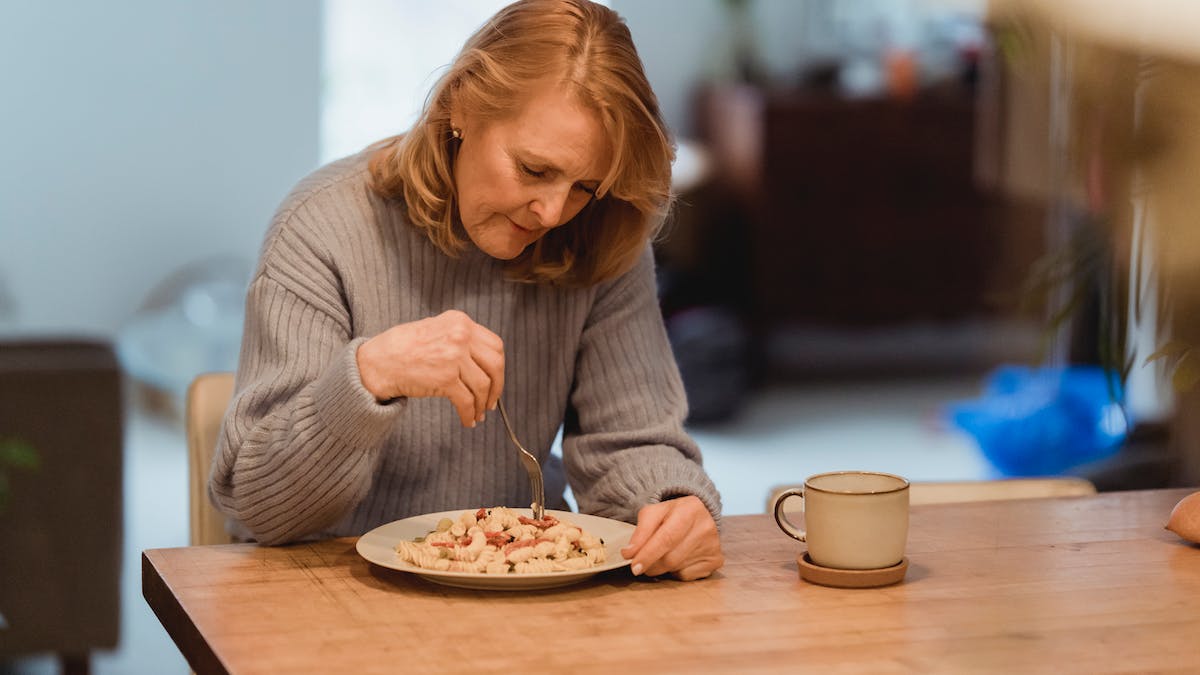
Managing Appetite Decline with Your Senior Loved One
The physical and lifestyle changes that occur as we age can result in having a decreased appetite. This may lead to rapid weight loss and other potentially dangerous conditions. According to Health in Aging, 10 percent of seniors aging in place do not consume enough daily calories.
The importance of proper nutrition is well-known and is especially important as we age and our bodies experience additional strains. Maintaining a healthy weight aids in physical and mental stamina. If you are concerned about your loved one’s recent loss of appetite, there are steps you can take to ensure they are receiving adequate nutrition.
What Causes Loss of Appetite for Older People?
In order to manage your relative’s appetite issues, you need to understand why they may not have the desire or ability to eat.
- Elderly people may not have the energy required to shop for groceries and prepare healthy meals.
- Health conditions like dementia, multiple sclerosis, and depression can reduce hunger or cause nausea, which makes food less appetizing.
- Medication side effects, such as dry mouth, can cause them to not feel as hungry.
- Dental problems and weakened mouth muscles make it more difficult for them to chew.
- Digestive issues can turn eating into more of a chore.
- Changing taste buds can result in food not tasting as good.
- Inactive lifestyle. A lack of physical activity causes them to not work up an appetite like they used to.
Ways to Increase Their Nutritional Intake
Rule out any serious health issues before experimenting with the following ideas:
- Maintaining a daily meal schedule will prepare their body and brain to be hungry at those times and they will start looking forward to meal times.
- Serve high-nutrient foods. Large portions can overwhelm them, but you can pack plenty of nutritionally dense calories into small meals. Include foods like avocado, nut butter, and finely chopped meats, cheeses, and eggs.
- Have easy-to-eat snacks ready for them, such as string cheese, dried fruit, and full-fat dairy options like yogurt and cottage cheese.
- Make smoothies or serve veggie and meat-packed soups. If chewing is difficult, these options are easier for them to consume and can be filled with fruits, veggies, and protein.
- Reduce the need for utensils. It can be difficult for some seniors to use forks and spoons due to dexterity issues. Try serving foods that don’t require them, such as fish sticks and fresh veggies and fruit.
Visiting Angels Helps Our Clients Stay Healthy
At Visiting Angels North Pittsburgh, we understand that elderly adults struggle with appetite. Our professional home care services can help support your loved one’s nutritional needs. Your senior family member’s caregiver is able to assist them with a variety of daily tasks, including shopping for healthy foods and preparing meals. Caregivers enjoy engaging clients in physical activity to help increase their energy and strength.
To get started with home care services in the Wexford area, fill out our online contact form or give us a call at 412-366-4860.
